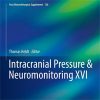Virtual Reality Tailored to the Needs of Post-ICU Patients
journals.lww.com
ICU-specific virtual reality appears safe and more immersive than 2D, implicating that ICU-specific virtual reality is feasible for clinical use. One should however be aware of simulator sickness-related symptoms. Future research is needed to confirm these findings in survivors of critical illness.
Volunteers in the head-mounted display virtual reality group experienced more mild symptoms of simulator sickness, expressed as symptoms of dizziness (p = 0.04) and stomach awareness (p = 0.04), than the 2D group. Nevertheless, none of the individual Simulator Sickness Questionnaire items were scored as being severe, no changes in vital signs were observed, and no sessions were prematurely stopped.
Volunteers were randomized to three arms: the head-mounted display virtual reality group (n = 15), the 2D group (n = 15), and the crossover group (n = 15).

















